Disclosure: This article contains affiliate links. We may earn a commission from purchases at no extra cost to you, which helps our travel content.
Standing at the edge of Gamla Stan, watching the morning light dance across centuries-old buildings reflected in calm waters, I felt that familiar thrill of discovery that has accompanied me from the Himalayan foothills to the Andean peaks. Stockholm—a city built across 14 islands—offers a unique blend of natural beauty, cultural richness, and Scandinavian design that speaks to both my mountaineer's appreciation for landscape and my dancer's love of cultural expression. After decades of seeking adventure in more remote corners of the world, this Baltic beauty proved that sometimes the most rewarding journeys happen where you least expect them.
Navigating Stockholm's Island Landscape
Stockholm presents a fascinating geographical puzzle—14 islands connected by 57 bridges, each area with its own distinct personality. As someone who typically navigates mountain trails, I found the city's layout initially disorienting but ultimately enchanting.
I began my exploration in Gamla Stan (Old Town), where narrow cobblestone streets wind between buildings painted in warm ochres and burnt siennas. The medieval architecture creates natural dance floors; I found myself instinctively measuring steps between ancient walls as if choreographing a new piece. Don't miss Stortorget square, where Stockholm's oldest buildings frame a perfect gathering space.
For efficient island-hopping, I purchased a 7-day SL Access Card which covers all public transportation including the essential ferry services. The card quickly paid for itself as I crisscrossed between Södermalm's hipster cafés, Djurgården's museums, and Kungsholmen's waterfront paths.
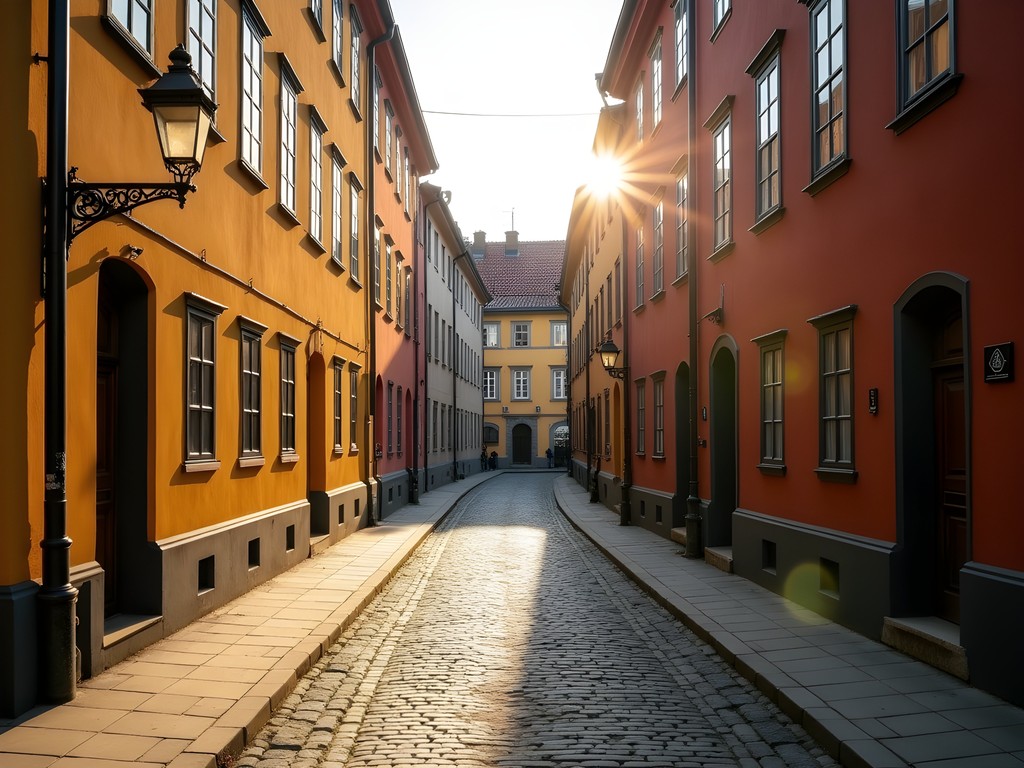
💡 Pro Tips
- Purchase the SL Access Card immediately upon arrival—it works on all public transportation including boats
- Explore Gamla Stan early morning (before 9am) to avoid crowds and capture the best photos
- Download the SL app to plan routes between islands efficiently
Cultural Immersion Through Movement and Music
My dual passions for mountaineering and dance have taught me that physical engagement with a place creates deeper connections than mere observation. Stockholm offers numerous opportunities for this kind of immersion.
I discovered the Swedish tradition of folkdans at Skansen, the open-air museum on Djurgården island. Watching performers execute precise footwork while maintaining serene upper bodies reminded me of classical Indian dance forms—that beautiful tension between control and expression. When invited to join a simple dance, I found myself adapting quickly to the rhythmic patterns, my body remembering similar circular formations from Himalayan folk traditions.
For a more contemporary experience, I visited Kulturhuset in the city center, where I caught a modern dance performance that incorporated elements of Swedish folklore with avant-garde movements. The building itself is worth exploring—six floors of cultural activities from art exhibitions to theater.
To truly understand Swedish culture, participate in the daily ritual of fika (coffee break). More than just caffeine, it's a mindful pause in the day. I became particularly fond of Café Pascal in Normalm, where I'd sip perfectly brewed coffee from my insulated mug (bringing your own cup is environmentally friendly and appreciated here) while watching the rhythm of local life unfold.
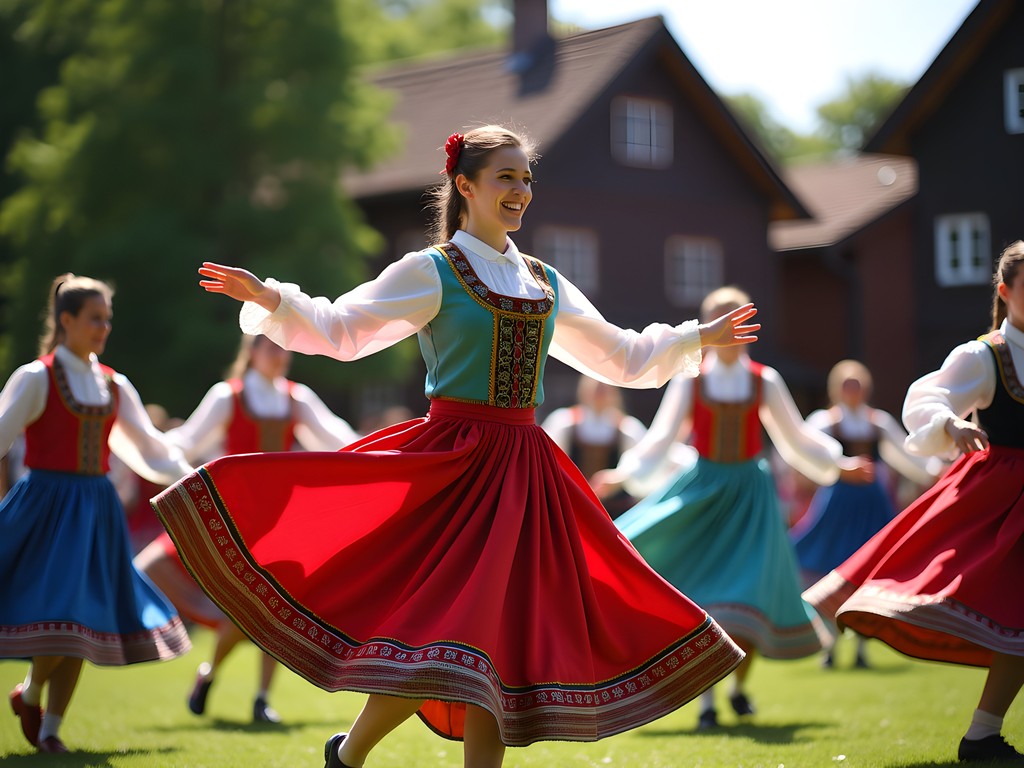
💡 Pro Tips
- Check Kulturhuset's website for free performances and exhibitions
- Join a folk dance session at Skansen on weekend afternoons—no experience necessary
- Practice the Swedish phrase 'En kaffe, tack' (One coffee, please) for your daily fika ritual
Elevated Perspectives: Finding Height in a Coastal City
As a mountaineer accustomed to seeking higher ground, I instinctively look for elevated perspectives in any new location. Stockholm may lack the dramatic peaks of Nepal or Peru, but it offers several vantage points that satisfy that craving for height and perspective.
My favorite discovery was Monteliusvägen, a 500-meter pedestrian path along the northern edge of Södermalm island. Arriving at sunset with my packable down jacket (evenings can be chilly even in summer), I was rewarded with a panoramic view of Riddarfjärden bay, Gamla Stan, and City Hall that rivaled many mountain vistas in its beauty.
For those seeking more elevation, the Stockholm City Hall tower (Stadshuset) offers guided tours to its 106-meter summit. The 365 steps reminded me of approaching a mountain refuge—that perfect combination of effort and reward. From the top, the city's archipelago layout becomes clear, revealing how water shapes every aspect of Stockholm's identity.
My technical climbing skills weren't needed in Stockholm, but I did find an excellent indoor climbing facility at Klättercentret Solna when I needed to stretch my muscles. The staff welcomed this obvious foreigner with typical Swedish warmth and efficiency.

💡 Pro Tips
- Visit Monteliusvägen for sunset views, but arrive 30 minutes early to secure a good viewing spot
- Book City Hall tower tours in advance during high season (June-August)
- Bring binoculars to appreciate the archipelago landscape from elevated viewpoints
Solo Dining Adventures in the Nordic Culinary Scene
Solo travelers often approach dining with trepidation, but Stockholm proved to be exceptionally accommodating for the solo gastronome. The city's restaurant culture embraces the concept of communal tables and bar seating, making it easy to enjoy meals without the awkwardness sometimes associated with dining alone.
My culinary journey began at Östermalms Saluhall, a historic food hall recently renovated but maintaining its 1888 charm. Here, I sampled traditional Swedish delicacies including gravlax (cured salmon) and various herring preparations. The vendors were patient with my questions, often sharing preparation techniques that reminded me of the careful attention to detail I've observed in Japanese cuisine.
For a truly Swedish experience, I booked a table at Pelikan in Södermalm, where I savored classic dishes like köttbullar (meatballs) with lingonberry jam and mashed potatoes. The restaurant's high ceilings and wood paneling created a warm atmosphere despite its size, and I found myself in conversation with locals at neighboring tables.
Street food also thrives in Stockholm. I discovered a perfect lunch routine: grabbing fresh cardamom buns from Fabrique bakery and eating them by the water's edge, using my pocket blanket to create an impromptu picnic spot. This ultralight, water-resistant blanket has accompanied me from Andean peaks to Baltic shores, proving its worth in diverse environments.

💡 Pro Tips
- Eat lunch at Östermalms Saluhall for better prices than dinner
- Don't hesitate to ask for a seat at the bar when dining solo—it's often the best place for interaction
- Try princess cake (prinsesstårta)—the green marzipan-covered dessert is a Swedish classic worth the calories
Archipelago Escapes: Day Trips from the City
Stockholm's true character extends beyond its urban islands into the wider archipelago—a scattered collection of over 30,000 islands and islets that stretch eastward into the Baltic Sea. As someone who finds restoration in natural landscapes, exploring these islands became the highlight of my Stockholm experience.
The most accessible day trip is to Vaxholm, often called the capital of the archipelago. Just 50 minutes by ferry from Stockholm's Strömkajen pier, this island offers colorful wooden houses, a formidable fortress, and significantly fewer tourists than the city center. I spent hours wandering quiet lanes, occasionally stopping to sketch waterfront scenes in my waterproof notebook, which has proven invaluable for journaling in unpredictable weather conditions from Himalayan monsoons to Baltic sea spray.
For a more immersive experience, I ventured further to Sandhamn on the archipelago's outer edge. The three-hour ferry journey becomes part of the adventure as you pass countless uninhabited islands. Once a pilot station, Sandhamn now serves as a sailing center with a distinctly maritime atmosphere. The island's eastern beaches face the open Baltic, creating a sense of standing at the edge of the world that resonates deeply with my mountaineer's soul.
These island excursions offer a perfect counterbalance to urban exploration, revealing how water shapes both the landscape and lifestyle of the Stockholm region.
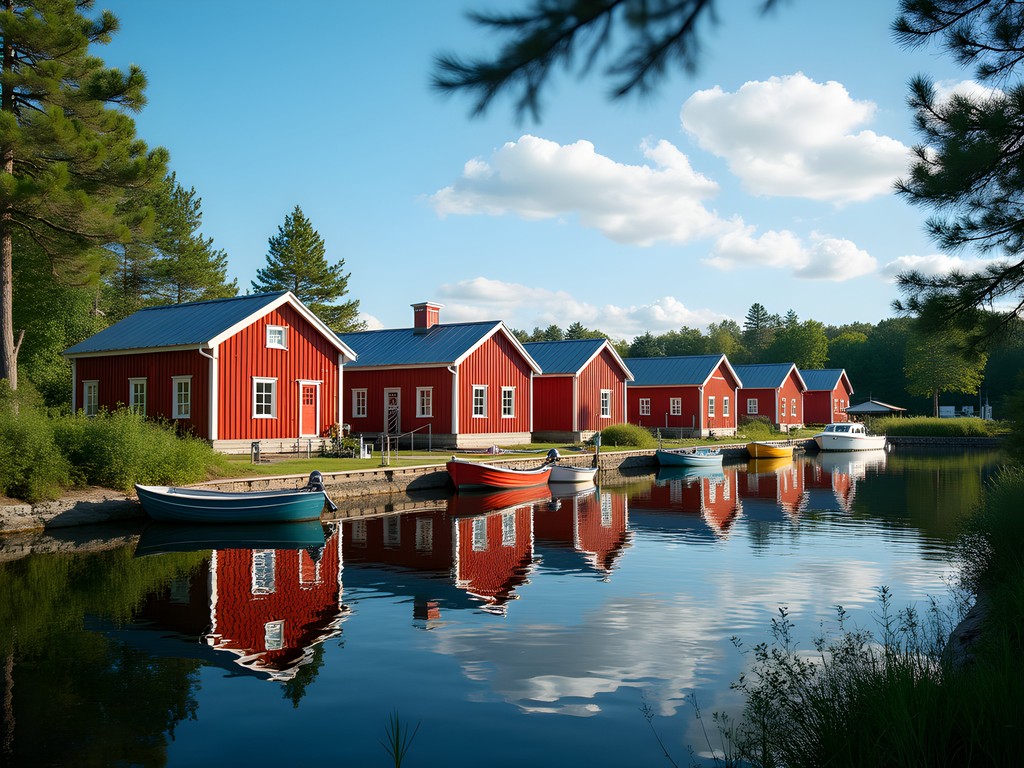
💡 Pro Tips
- Purchase archipelago ferry tickets through the Waxholmsbolaget company—they offer day passes for island hopping
- Bring swimwear in summer months; many islands have excellent swimming spots
- Pack a picnic for outer archipelago trips as restaurant options become limited
Final Thoughts
As my ferry pulled away from Strömkajen on my final morning, Stockholm receded into a tapestry of spires and islands, copper-green domes and terracotta rooftops. The city had revealed itself to me not just through its museums and monuments, but through movement—across islands, through dance, in the rhythm of daily fika breaks and evening promenades.
Stockholm surprised me. After decades seeking cultural authenticity in remote mountain villages and challenging treks, this European capital offered unexpected parallels to my most cherished travel experiences. The precision and care in Swedish folk dance echoed the ceremonial movements I've studied in Nepal. The archipelago's rocky outcrops provided the perspective and solitude I typically seek at higher altitudes.
For the solo traveler willing to engage—to join the dance, to strike up conversations across the restaurant bar, to venture beyond the central islands—Stockholm offers rich rewards. As I settle back into my postal route in St. Louis, I carry with me not just memories of Stockholm's beauty, but a renewed appreciation for finding cultural depth and natural connection in unexpected places. The journey never ends; it simply changes elevation.
✨ Key Takeaways
- Stockholm's island geography creates natural neighborhoods perfect for focused exploration
- Solo travelers will find Swedes reserved but welcoming when approached with genuine interest
- The archipelago provides essential natural balance to the urban experience
- Summer brings exceptional light conditions with long golden evenings perfect for photography
📋 Practical Information
Best Time to Visit
June through August for long daylight hours and outdoor activities
Budget Estimate
$150-200 per day including mid-range accommodation, meals, and activities
Recommended Duration
5-7 days
Difficulty Level
Easy

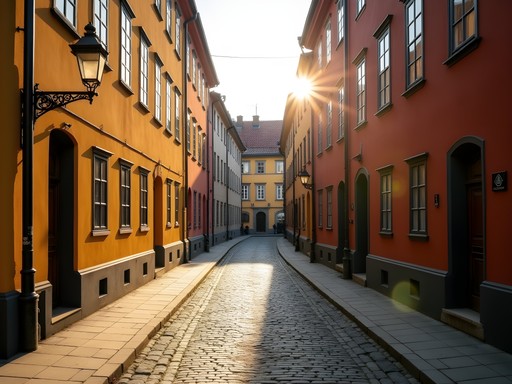
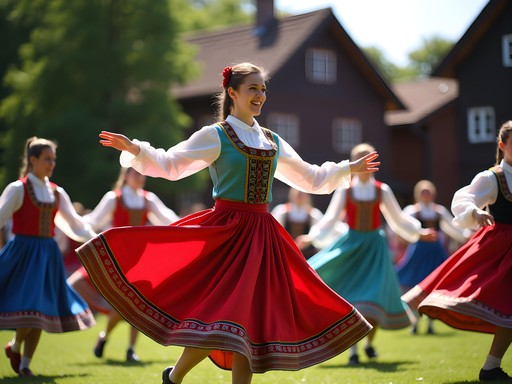
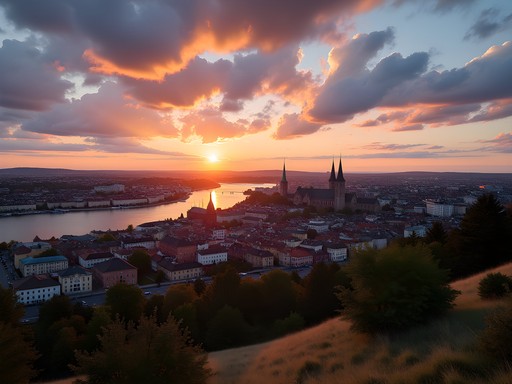

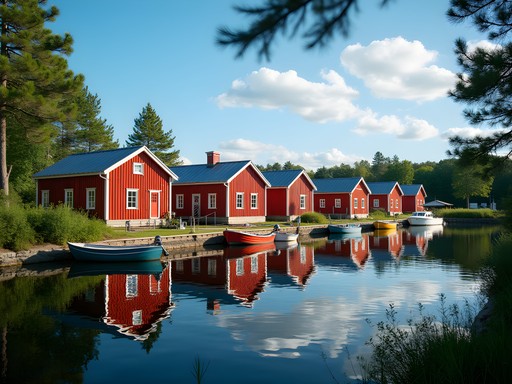




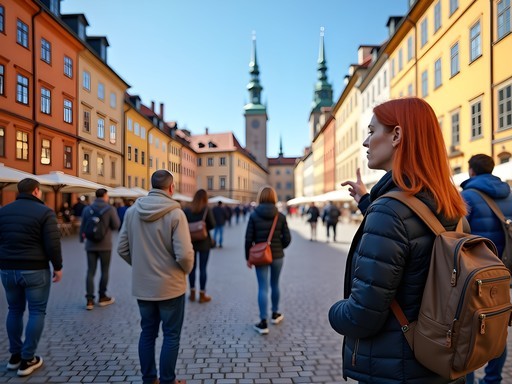


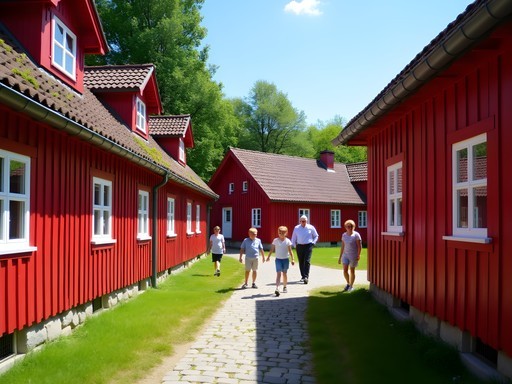

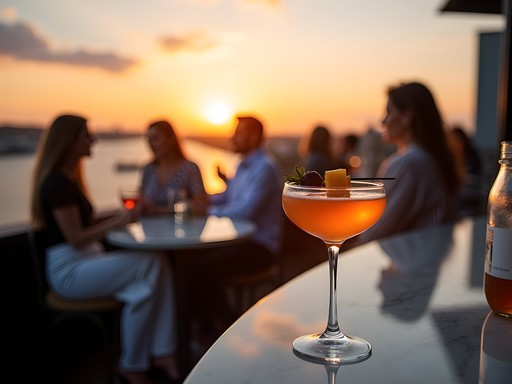
Comments
Claire Hawkins
Aiden, your post brings back such wonderful memories! I took my family to Stockholm last summer and your section on 'Elevated Perspectives' helped us discover Monteliusvägen - that walking path gave us the most stunning views of the city! My kids still talk about the Vasa Museum (those massive ships!) and we found the staff at Rosendals Trädgård incredibly accommodating for families. One tip for anyone going: we stayed in Södermalm which was perfect with kids - lots of small parks and the Stockholm Card paid for itself in just two days with all the museum entries. Question: did you find Stockholm expensive for dining? We discovered some reasonable lunch spots but dinners definitely stretched our budget!
Aiden Gupta
Thanks Claire! Dining was definitely pricey, but I found some great lunch deals at food halls like K25 and Östermalms Saluhall. For dinners, the neighborhood pubs (especially in Södermalm) had more reasonable prices than the touristy spots in Gamla Stan.
Claire Hawkins
That's exactly what we discovered too! Those food halls were lifesavers. Next time we'll try more neighborhood pubs - great tip!
travelbackpacker
Just got back from Stockholm myself last month! Your island-hopping tips were spot on. The 72-hour transit pass saved me so much money. Did you make it out to Artipelag? That modern art museum on the water was my unexpected highlight. The ferry ride there was half the experience!
backpackclimber4895
How crowded was public transport? Planning a trip in October.
travelbackpacker
Not bad at all! The subway was efficient and boats were easy to navigate. Get the SL app for real-time schedules. October should be even quieter than when I went.
backpackclimber4895
Those Gamla Stan morning shots are incredible! Definitely adding Stockholm to my list.
Aiden Gupta
Thanks! Early mornings there were magical - hardly anyone around and the light was perfect.
dreambackpacker
If anyone's heading to Stockholm soon, don't miss taking a day trip to Drottningholm Palace - it's like a mini-Versailles and easily accessible by boat. The boat ride itself is gorgeous and gives you a different perspective of the city. Also, for budget travelers, the free walking tours that start in Gamla Stan are excellent for orientation on your first day.
Fatima Sims
Great tip about Drottningholm! The gardens are spectacular even in early autumn. I'd add that the boat tours run less frequently in off-season, so check the schedule in advance.
summerexplorer
Your description of watching the morning light on Gamla Stan buildings is pure poetry! Can't wait to experience this myself next spring!
smartone8704
Did you feel safe as a solo traveler? Thinking about my first solo trip and Stockholm looks perfect!
dreambackpacker4349
Great post! I'm planning a solo trip to Stockholm in January - I know it'll be cold and dark, but how do you think the experience compares to summer? Are most attractions still open? Any winter-specific recommendations?
exploreace
I went in February! It's magical with snow, but pack SERIOUS winter gear. The Christmas markets might still be open in early January. The Vasa Museum is perfect for winter as it's indoors. Also try ice skating on frozen lakes if conditions allow!
Marco Flores
Your section on solo dining really resonated with me! Stockholm was the first place I learned to embrace eating alone at nice restaurants. That little place you mentioned in Södermalm with the cardamom buns? I think I know it - Petrus? The staff there made me feel so welcome even though I was alone and barely spoke Swedish. I'd also recommend the food hall at Östermalms Saluhall for solo travelers - you can sample so many local specialties in one place without the awkwardness of a formal restaurant setting. I always pack my pocket phrasebook which has a great food section - the locals appreciate even basic attempts at Swedish!
summerexplorer
Östermalms Saluhall is AMAZING! I spent an entire afternoon there just eating my way through different stalls. The herring varieties alone are worth the trip!
escapefan
We did the public transportation too and it was great! So clean and efficient.
Fatima Sims
Aiden, your piece brought back so many memories of my solo adventure in Stockholm last summer! I also found that ferry-hopping between islands was the perfect way to get oriented. For anyone planning a trip, I'd add that the Stockholm Pass was worth every krona - it includes public transport and entry to most major attractions. The rooftop tour at Gamla Stan that you mentioned was a highlight for me too - though definitely not for those with a fear of heights! Did you make it to the Fotografiska museum? Their top floor café has what I think might be the best view in the city.
dreambackpacker
Fotografiska was amazing when I visited! That café view is unbeatable, especially at sunset. Their exhibitions are always thought-provoking too.
smartone8704
Is the Stockholm Pass worth it for just a 3-day trip?
Fatima Sims
@smartone8704 Absolutely! 3 days is perfect for the 72-hour pass. You'll easily visit enough attractions to make it worthwhile, plus the included transport is super convenient.
Venture X
Premium card with 2X miles, $300 travel credit, Priority Pass